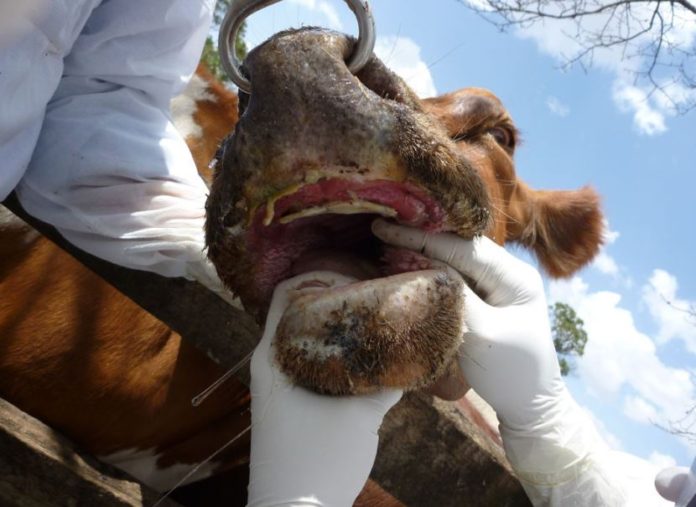The South Africa’s livestock industry is recording losses running into Hundreds of Millions of rand as a result of the continued foot and mouth disease outbreak, said John Steenhuisen, the country’s Agriculture Minister while visiting Karan Beef’s Heidelberg feedlot.
First confirmed at the sizable Karan Beef feedlot on June 2, the outbreak has since proliferated across at least four provinces—Gauteng, KwaZulu‑Natal, Limpopo, and North West—with the most substantial activity in KwaZulu‑Natal and Gauteng.
Steenhuisen warned the virus has disrupted entire value chains, compelling corporate buyers, restaurant chains, and fast‑food outlets to grapple with mounting meat prices due to supply constraints.
The ripple effects are acute: domestic consumers contend with spiking prices amid supply cuts, and export markets—including China—have suspended beef imports following confirmed cases at major feedlots.
Vaccination and enforcement
In a decisive response, the government earmarked R43 million to purchase FMD vaccines, with more than 900,000 doses arriving last week—administered in a historic feedlot‑level inoculation rollout. Steenhuisen underscored that this marks the first-ever feedlot vaccination campaign, targeting the viral load directly at its source.
He said: “We have put aside R43 million for the purchase of vaccination… the first batch of 900,000 vaccines has arrived and we also plan to purchase more vaccines”. A second consignment is already on order to maintain the vaccination push.
Containment measures
Authorities attributed much of the outbreak’s spread to unauthorized livestock movements and auction non-compliance. This has led to repeated extensions of disease management areas, which restrict animal movements without permits.
Steenhuisen emphasized the importance of strict enforcement, noting that only those who flout regulations risk propagation of the disease: “The virus can only move out of the disease management area if people break the regulations.”
Violators face criminal charges and civil suits, with affected producers able to quantify and seek damages—such as Karan Beef, which has borne heavy financial losses from the outbreak.
Biosecurity measures
In addition to economic losses, a prior FMD event in Humansdorp inflicted R80–100 million in damage to the dairy sector, illustrating the high stakes of such outbreaks.
Provincial leaders, including Gauteng’s MEC Vuyiswa Ramokgopa, echoed the call for consistency in biosecurity. They stressed measures such as traceability at auctions, secure farm boundaries, and uniform protocols for all farm sizes.
Economists from Agbiz have noted that while meat exports surged by 30% in 2024—totaling nearly 38,700 t—the resurgence of FMD now threatens these gains as export bans cripple the recovery.
While immediate control hinges on vaccine coverage and public cooperation, Steenhuisen cautions that future outbreaks may still occur if biosecurity isn’t hardened. The effectiveness of mass vaccination, together with rigorous traceability and movement restrictions, will determine whether South Africa can reclaim its disease-free status and reopen its export markets to nations like China.
Private sector collaboration is also critical, with calls to boost domestic vaccine manufacturing capacity—through facilities such as Onderstepoort Biological Products—and to integrate small-scale and black farmers into fortified disease control frameworks.








